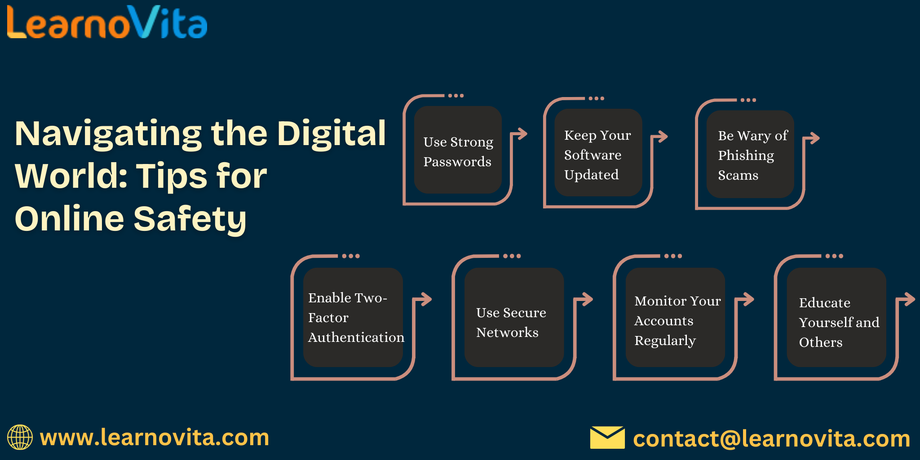Stay Secure: Essential Strategies for Online Safety
In our increasingly digital world, online safety is paramount. Whether you’re shopping, banking, or simply browsing, understanding how to protect yourself from cyber threats is essential. This blog will outline effective strategies to help you stay secure online.
For those looking to enhance their skills, Cyber Security Training in Bangalore programs offer comprehensive education and job placement assistance, making it easier to master this tool and advance your career.

Understanding Online Threats
Cyber threats can take many forms, including malware, phishing, and identity theft. Recognizing these threats is the first step toward safeguarding your personal information and digital assets.
1. Create Strong Passwords
Why Strong Passwords Matter:
Weak passwords are an easy target for hackers. A strong password can significantly enhance your security.
Tips for Strong Passwords:
Use a combination of upper- and lower-case letters, numbers, and symbols.
Avoid using easily guessed information like names or birthdays.
Consider using a password manager to generate and store complex passwords securely.
2. Enable Two-Factor Authentication (2FA)
What is 2FA?
Two-factor authentication adds an extra layer of security by requiring a second form of verification beyond just your password.
How to Enable 2FA:
Check your account settings for 2FA options.
Use an authenticator app for additional security, as it’s often more secure than SMS codes.
3. Be Cautious with Emails and Links
Identifying Phishing Attempts:
Phishing scams often disguise themselves as legitimate emails, attempting to steal your information.
Tips to Avoid Phishing:
Always verify the sender’s email address for inconsistencies.
Never click on links or download attachments from unknown sources.
Be wary of emails that create a sense of urgency or require immediate action.
4. Keep Software Up to Date
Why Software Updates Matter:
Regular updates fix security vulnerabilities that could be exploited by cybercriminals.
How to Stay Updated:
Enable automatic updates for your operating system and applications.
Regularly check for updates on all your devices.
5. Use Secure Networks
Understanding Secure Connections:
Public Wi-Fi networks are often unsecured, making them vulnerable to attacks.
Tips for Safe Browsing:
Use a Virtual Private Network (VPN) when accessing public Wi-Fi.
Avoid accessing sensitive information or making financial transactions over unsecured networks.
With the aid of Cyber Security Course in Online programs, which offer comprehensive training and job placement support to anyone looking to develop their talents, it’s easier to learn this tool and advance your career.
6. Monitor Your Accounts Regularly
The Importance of Monitoring:
Regularly reviewing your accounts can help you spot unauthorized transactions or suspicious activities quickly.
Monitoring Tips:
Set up transaction alerts on your bank and credit card accounts.
Review your credit report at least once a year to catch any unusual activity.
7. Educate Yourself and Others
Staying Informed:
Cybersecurity is an ever-evolving field. Keeping up with the latest threats and best practices is crucial.
Ways to Educate:
Follow reputable cybersecurity blogs and news sources.
Share your knowledge with family and friends to help create a safer online community.
8. Backup Your Data
Why Backups Are Essential:
Regular backups protect your data against loss due to ransomware or hardware failures.
How to Backup:
Use cloud storage services or external hard drives to keep copies of important files.
Set a regular backup schedule to ensure your data is always protected.
Conclusion
Staying secure online requires awareness, vigilance, and proactive measures. By implementing these essential strategies, you can significantly reduce your risk of falling victim to cyber threats. Remember, your online safety is in your hands—stay informed, stay secure, and enjoy your digital life!


Comments
Post a Comment